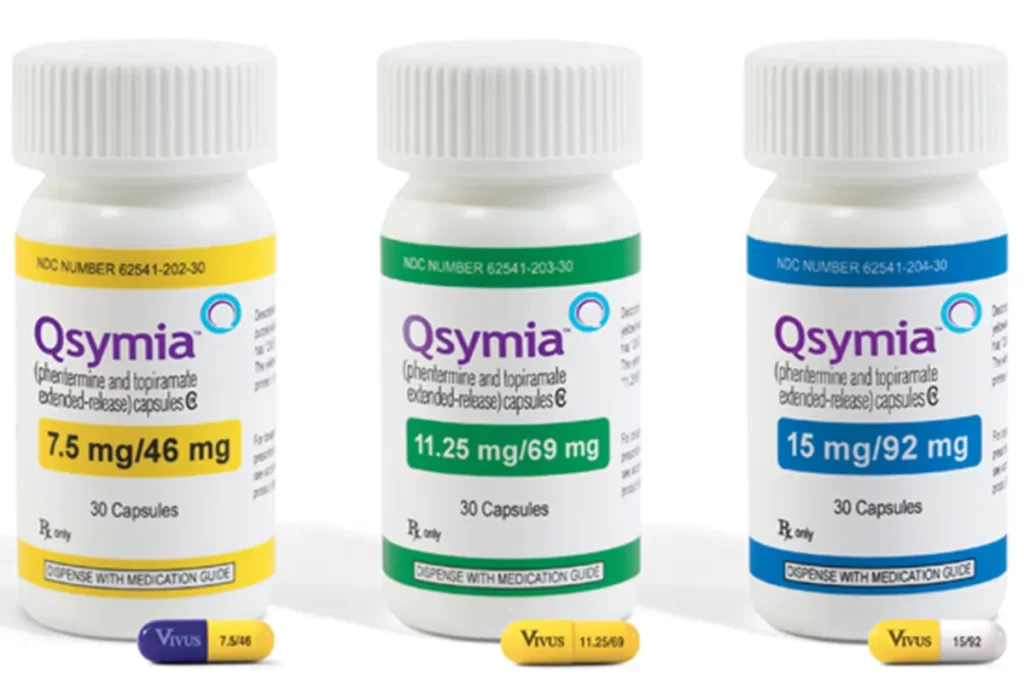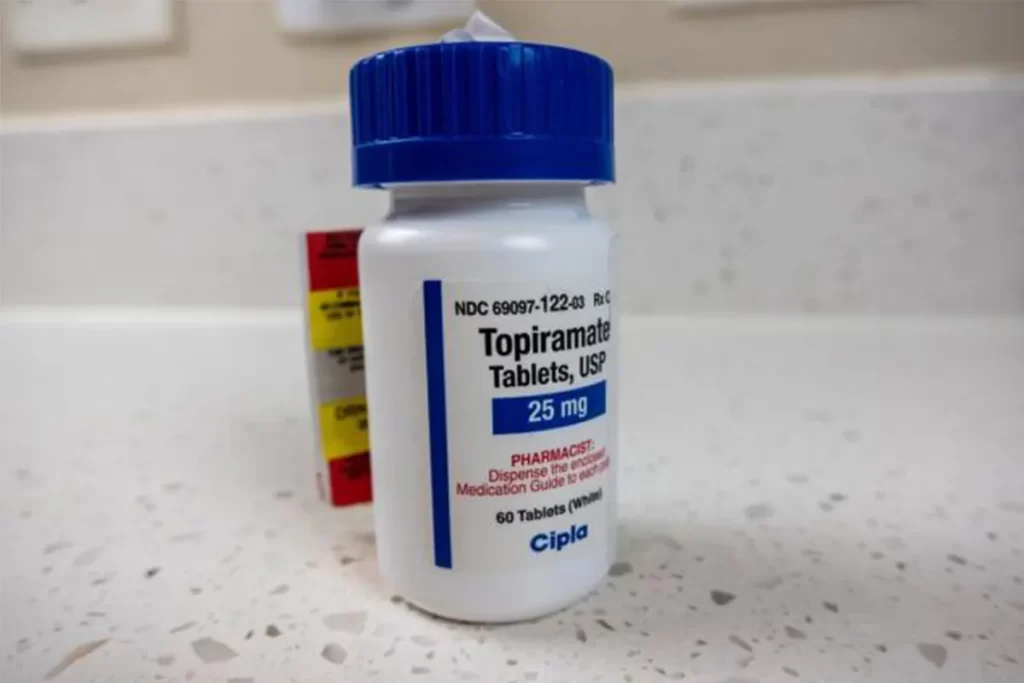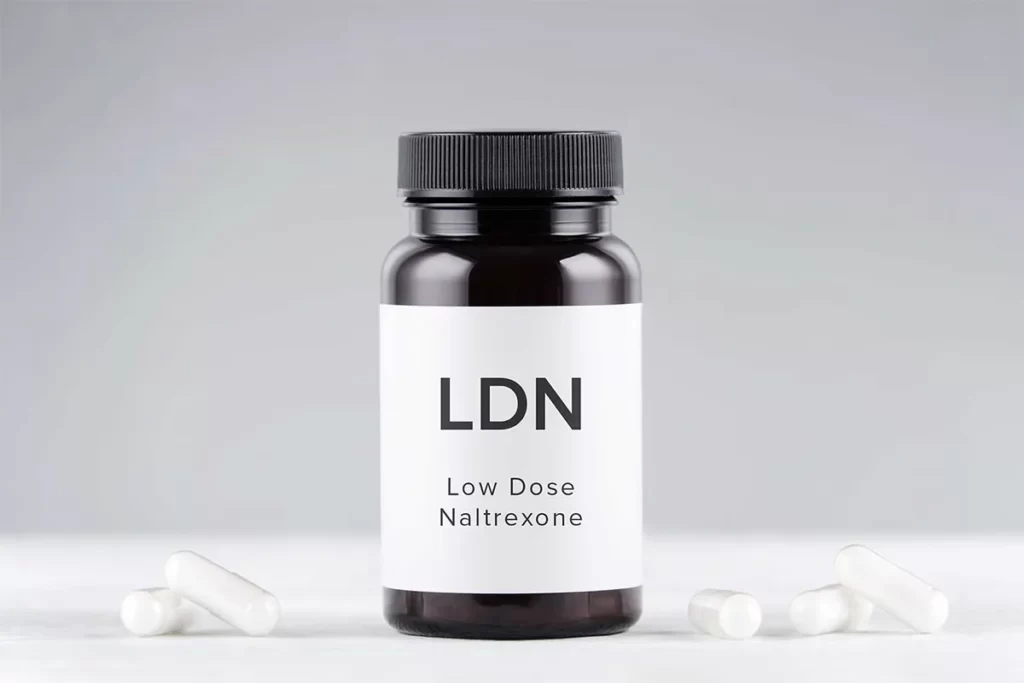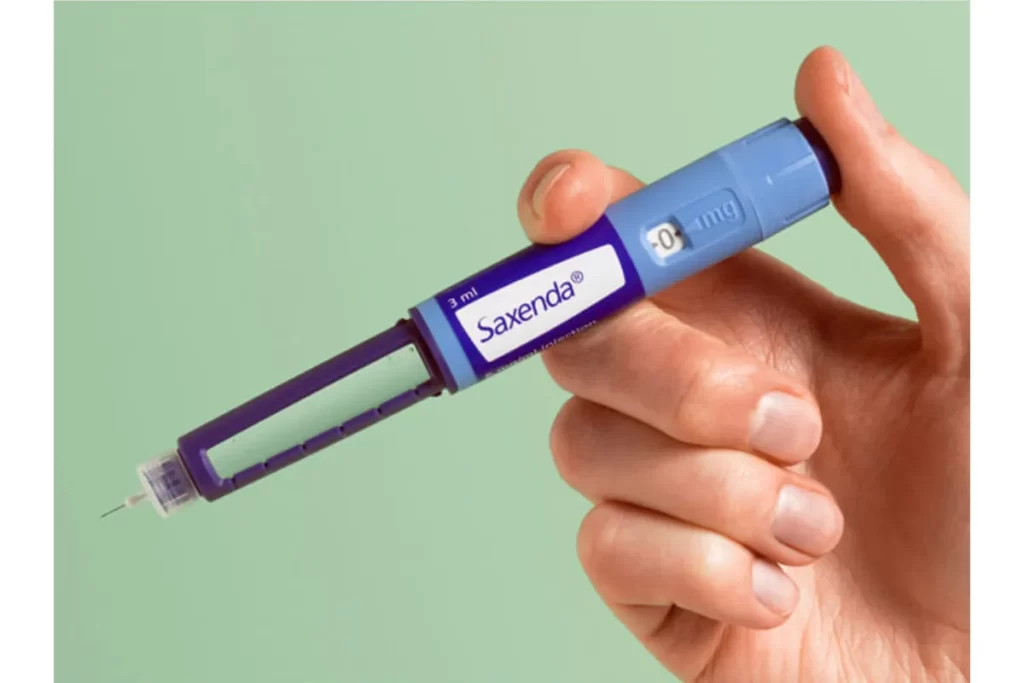Does Weight Gain After Hysterectomy? Causes and Prevention
-
 Written by
Michael J. Ormsbee
Written by
Michael J. Ormsbee
- LAST UPDATED November 3, 2023
A hysterectomy is a commonly performed surgical procedure on women that involves the removal of the uterus. This operation is frequently carried out to address issues such as excessive bleeding, fibroids, endometriosis, pelvic organ prolapse, and cancer. The extent of the surgery can vary; it may be partial, involving only the uterus, or complete, which includes the removal of the uterus, cervix, and ovaries.
Weight gain after Hysterectomy is a concern for many women. This detailed guide will explore the research, identify potential causes, and offer strategies to prevent weight gain following a hysterectomy. By recognizing the contributing factors and implementing specific lifestyle modifications, women can preserve their health and wellbeing after this significant surgical intervention.
Does Hysterectomy Lead to Weight Gain?
One of the biggest concerns many women have before undergoing a hysterectomy is – will I put on excess weight after the surgery? There are conflicting reports on whether hysterectomy causes weight gain. Here is an overview of what the research reveals:
A study published in Obstetrics & Gynecology involving over 2,000 women found that hysterectomy was associated with an average weight gain of around 5 pounds across all age groups. The weight gain after hysterectomy was especially evident within 2 years after the surgery.
However, a randomized control trial from the Women’s Health Initiative did not find a significant difference in weight gain after hysterectomy compared to control groups who did not undergo the surgery. The weight changes after hysterectomy were similar regardless of whether the uterus alone or the ovaries were also removed.
A cohort study in the American Journal of Epidemiology showed that weight gain after a hysterectomy is more likely to occur after a complete hysterectomy rather than partial or subtotal procedures. Conversely, research in Menopause found women had minimal weight gain after partial hysterectomy but slightly higher weight gain after total hysterectomy. However, the difference was small.
Overall, evidence remains inconclusive on whether hysterectomies lead to weight gain. Changes likely depend on a variety of factors like genetics, lifestyle habits, diet, activity levels, and hormonal fluctuations.
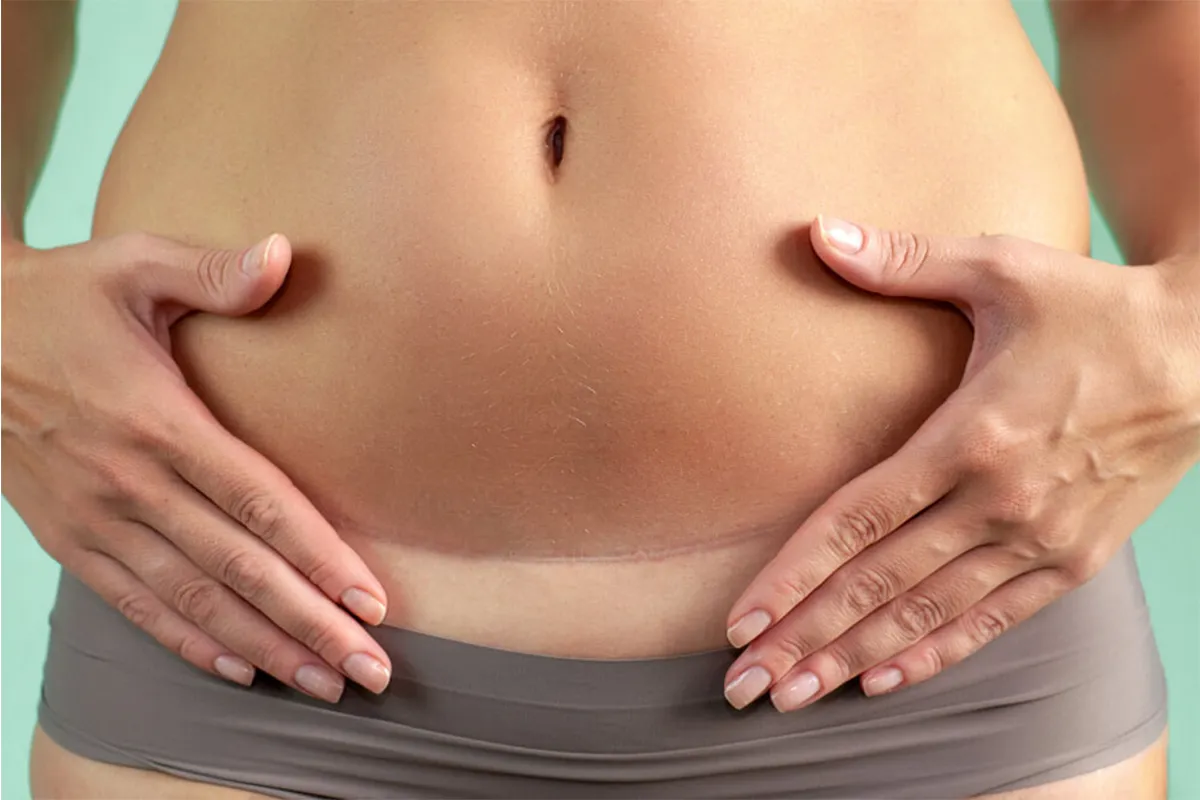
8 Reasons to Weight Gain After Hysterectomy
Though the role of hysterectomy in weight gain is unclear, there are several explanations for why women may put on pounds after the surgery:
1. The onset of surgical menopause and hormone changes
If the ovaries are removed along with the uterus before natural menopause, this can trigger surgical menopause leading to an abrupt drop in estrogen levels. Lower estrogen is linked to increased belly fat as the hormone helps maintain fat distribution in a pear shape rather than accumulating visceral android fat.
Menopause can also slow down metabolism and the rapid weight gain after hysterectomy may be related to these hormonal shifts rather than the surgery itself. However, the potential weight gain after hysterectomy where the ovaries remain intact indicates other factors contribute too.
2. Lack of physical activity during recovery
After hysterectomy surgery, most women are advised to avoid strenuous activity and exercise for 6-8 weeks during the recovery period. This sudden inactivity after a hysterectomy can lead to muscle loss and reduced metabolism. The prolonged rest and healing process may result in weight gain after hysterectomy simply due to lack of calorie expenditure.
3. Increased appetite and calorie intake
Some women experience increased appetite and food cravings after a hysterectomy. This may be due to hormonal changes or side effects from pain medications. Consuming more calories without adjusting daily needs or activity can readily lead to weight gain after hysterectomy surgery.
4. Fluid retention and bloating
Temporary swelling and bloating are common after any surgery as the body heals and reduces inflammation. However, some women continue battling fluid retention and abdominal bloating long after the hysterectomy procedure. This fluid accumulation and ongoing inflammation can contribute to weight gain after hysterectomy.
5. Loss of muscle mass
Along with being less active during recovery, the lack of mobility after surgery can trigger loss of muscle mass. As muscle is more metabolically active than fat, this drop in muscle mass can lower daily calorie needs. The reduced muscle and slower metabolism make it easier to gain weight after hysterectomy if calorie intake is not adjusted.
6. Increased stress and depression
Some women report increased stress, anxiety, and depression after undergoing hysterectomy surgery. This may be attributed to changes in hormone levels, especially after ovary removal. Stress can increase cortisol and lead to comfort eating and weight gain after hysterectomy. Post-surgical depression may also reduce motivation for meal planning and exercise.
7. Reverting to old lifestyle habits
For some women, returning to their usual dietary and activity habits after surgery can backfire. If they were less active before or consistently overate, slipping back into those behaviors can drive weight gain after hysterectomy. Without guidance, they may overestimate calorie needs and revert to unhealthy patterns after the procedure.
8. Side effects of medication
After a hysterectomy, most women need to take medication for pain management and to replace hormones if the ovaries are removed. Some of these drugs like steroids, antidepressants, and hormone replacement therapy can increase appetite, fluid retention, and weight gain as side effects. The medications may play a role in weight changes after hysterectomy rather than the surgery itself.
Collectively, the weight gain attributed to hysterectomy may be related more to medication side effects, diet, hormonal shifts, and reduced activity levels rather than the uterus removal itself. Understanding the root causes can help women take preventive action through diet, exercise, stress management, and lifestyle changes.

How to Avoid Weight Gain After Hysterectomy Surgery
Here are some comprehensive strategies women can follow to minimize and manage weight gain after hysterectomy surgery:
1. Gradually resume physical activity under medical guidance
Once doctors approve, it is vital to slowly get moving and rebuild activity after hysterectomy. Low-impact exercise like walking helps regain mobility, prevents muscle loss, boosts metabolism, and counteracts weight gain after hysterectomy. Swimming and cycling can be good options as they put minimal pressure on the core and incision area. Consult a physical therapist to design a personalized activity program for post-hysterectomy recovery.
2. Focus on nutritious anti-inflammatory foods
Choosing plenty of fresh fruits, vegetables, lean proteins, whole grains, nuts, and healthy fats can provide nutrients to aid healing while preventing weight gain after hysterectomy. Anti-inflammatory foods like fatty fish, berries, leafy greens, tart cherry juice, and turmeric may also help reduce swelling and fluid retention. Avoid heavily processed foods, added sugars, and excess salt to minimize fluid accumulation.
3. Stay hydrated to reduce bloating
Drinking adequate water and hydrating fluids helps flush out excess sodium that can cause fluid retention and weight gain after hysterectomy surgery. Herbal teas, diluted fruit juices, coconut water, and soups also contribute to fluid intake. Reduce alcohol and caffeinated beverages that have a diuretic effect and dehydrate the body. Adequate hydration supports healing and prevents water retention adding to weight post-surgery.
4. Optimize nutrition with expert guidance
Working with a nutritionist or registered dietitian can help tailor dietary needs to complement recovery while avoiding weight gain after hysterectomy. They can provide meal plans to meet changing calorie needs, adjust macronutrients for hormonal changes, and advise food substitutions that don’t aggravate digestive issues, bloating, or fluid retention after hysterectomy surgery.
5. Address emotional eating triggers
Surgery and hormone changes often heighten stress and emotional eating tendencies. Identifying triggers that drive overeating and learning healthier coping techniques helps prevent mindless eating and weight gain after hysterectomy. Meditation, joining support groups, and journaling can enhance resilience to manage mood swings after surgery.
6. Minimize the use of medications that cause weight gain
Certain pain medications, steroids, and some hormone replacement drugs may have weight gain as a side effect after hysterectomy surgery. Work closely with your doctor to take the lowest effective doses and try alternative pain relief options to avoid medication-induced weight changes. Report any significant weight gain promptly to adjust prescriptions.
7. Get adequate sleep
Sticking to a regular sleep routine with 7-8 hours of quality nightly rest aids post-surgical healing and supports weight management after hysterectomy. Poor sleep increases cortisol and ghrelin hormones that stimulate appetite and fat storage. It also reduces leptin which controls satiety. Adequate sleep regulates these hormones to optimize weight.
8. Incorporate strength training
Once approved to exercise, adding light strength training preserves lean muscle mass and offsets metabolism slowdown from sarcopenia. Building muscles burns more daily calories helping prevent gradual weight gain after hysterectomy. Body weight and resistance band exercises are an ideal starting point before progressing to weights under expert guidance.
9. Stay consistent with lifestyle changes
Small sustainable adjustments to diet and daily movement stack up over time for better hysterectomy recovery and avoiding weight gain after hysterectomy. Lapses shouldn’t derail progress. Consistency with lifestyle changes is key rather than aggressive short-term dieting that is hard to sustain long-term after surgery.
10. Join a post-hysterectomy support community
Connecting with other women who have undergone hysterectomy surgery provides social motivation, and emotional support and shares tips on managing challenges like weight changes. Peer support groups aid accountability, information exchange, and follow-through on healthy habits after hysterectomy.
While the impact of hysterectomy itself on weight remains variable, being proactive helps women maintain optimal health during post-surgical healing and in the long run.

6 Alternatives to Hysterectomy That Avoid Weight Gain Side Effects
For women concerned about weight gain after hysterectomy, it is worthwhile to explore alternative treatments that can treat gynecological conditions while conserving the uterus and ovaries. These options may help avoid or minimize hormone changes, loss of muscle mass, reduced activity, and other factors that influence weight after surgery.
Myomectomy
This surgery removes uterine fibroids while preserving the uterus. For women wanting to avoid hysterectomy due to fears of weight gain after hysterectomy, myomectomy provides a uterine-sparing option. Recovery involves less hormonal fluctuation and typically shorter restrictions on physical activity that aid post-surgical weight management.
Endometrial Ablation
This procedure destroys the lining of the uterus to control heavy menstrual bleeding. It conserves the uterus so can help prevent weight gain attributed to hysterectomy surgery. Recovery is shorter with fewer activity restrictions compared to hysterectomy, enabling women to resume exercise sooner for weight control.
Uterine Artery Embolization
Small particles are injected to block blood flow to fibroids shrinking them. This non-surgical treatment spares the uterus so avoids weight gain from a hysterectomy. Recovery is faster allowing resumption of normal activity and exercise for easier weight maintenance after the procedure.
MRI-Guided Focused Ultrasound
High-intensity ultrasound waves are targeted to destroy fibroids non-invasively. Keeping the uterus intact helps prevent weight gain effects associated with hysterectomy surgery. Quicker recovery with no incisions enables moderate activity even the next day to manage weight.
Medications
Drugs like GnRH agonists, birth control pills, and NSAIDs can provide pharmaceutical treatment for fibroids and heavy periods while avoiding hysterectomy. This medication approach instead of surgery prevents weight gain related to hormone changes, reduced activity, and muscle loss after hysterectomy.
Natural Remedies
Herbs, supplements, diet, and lifestyle changes can also manage gynecological issues conservatively. Avoiding surgery helps sidestep weight gain that may occur post-hysterectomy surgery. Natural remedies allow women to stay active and be proactive with weight management.
Discussing the pros and cons of these minimally invasive options compared to hysterectomy ensures women make the most informed choice aligned with their priorities like fitness goals and weight management after surgery. The key is an open dialogue with your OB-GYN about your concerns regarding potential weight gain after a hysterectomy.
Conclusion
Research on whether hysterectomy causes weight gain remains inconsistent. Possible reasons for weight gain after the surgery include inactivity during recovery, hormone changes, diet, stress, and other lifestyle factors. Being active, watchful of nutrition, and making sustainable healthy changes can help minimize and manage post-hysterectomy weight gain. Monitoring fitness and implementing corrective measures under medical supervision is key to staying healthy.

Why am I gaining weight after a hysterectomy?
There are several reasons you may be gaining weight after a hysterectomy. Loss of ovarian function and the onset of surgical menopause can cause hormonal changes that increase belly fat storage and slow metabolism. Inactivity and low-calorie expenditure during hysterectomy recovery can also lead to muscle loss and weight gain. Post-surgical fluid retention and bloating as the body heals can temporarily add pounds. Stress, depression, reverting to unhealthy eating habits after surgery, and medication side effects also commonly contribute to weight gain after hysterectomy. However, weight changes likely depend on your unique circumstances, and research remains unclear on whether hysterectomy itself directly causes weight gain.
Is it harder to lose weight after a hysterectomy?
Many women find it more challenging to lose weight or keep it off after a hysterectomy. This may be attributed to reduced mobility, loss of muscle mass, and decreased metabolic rate following surgery. Postmenopausal hormonal changes like lowered estrogen can also make it harder to lose weight, especially around the midsection. Stress and emotional eating due to surgery may sabotage diet and exercise efforts as well. It is important not to get discouraged. Focus on nourishing, anti-inflammatory foods, gradually increasing activity under medical guidance, sufficient sleep, and managing mood through support groups. Be consistent with lifestyle changes and celebrate small victories on your road to recovery.
Why is my stomach getting bigger after hysterectomy?
An expanding waistline and belly growth after hysterectomy is commonly due to a combination of factors. Loss of ovarian function reduces estrogen, which shifts fat storage patterns to visceral abdominal fat. Fluid retention and swelling during surgical healing can also enlarge the waist temporarily. In addition, hormonal changes, inactivity, lack of muscle tone, and a slowing metabolism make it easier to gain fat around the midsection after hysterectomy. Getting back to regular activity as able, optimal nutrition, rest, stress management, and wearing compression garments can help minimize abdominal size after surgery.
Does your figure change after the hysterectomy?
It is common for your figure to change somewhat after a hysterectomy procedure, though the extent varies individually. Loss of muscle mass combined with slowed metabolism makes it easier to gain fat, especially around the abdomen due to hormone changes. Heavier bleeding before surgery may have reduced iron stores, which could minimize muscle tone. Fluid retention also influences the figure temporarily. Focus on rebuilding strength with exercises like Pilates, getting enough protein and nutrition, and being consistent with healthy lifestyle habits to help your body adjust optimally long-term after hysterectomy.

